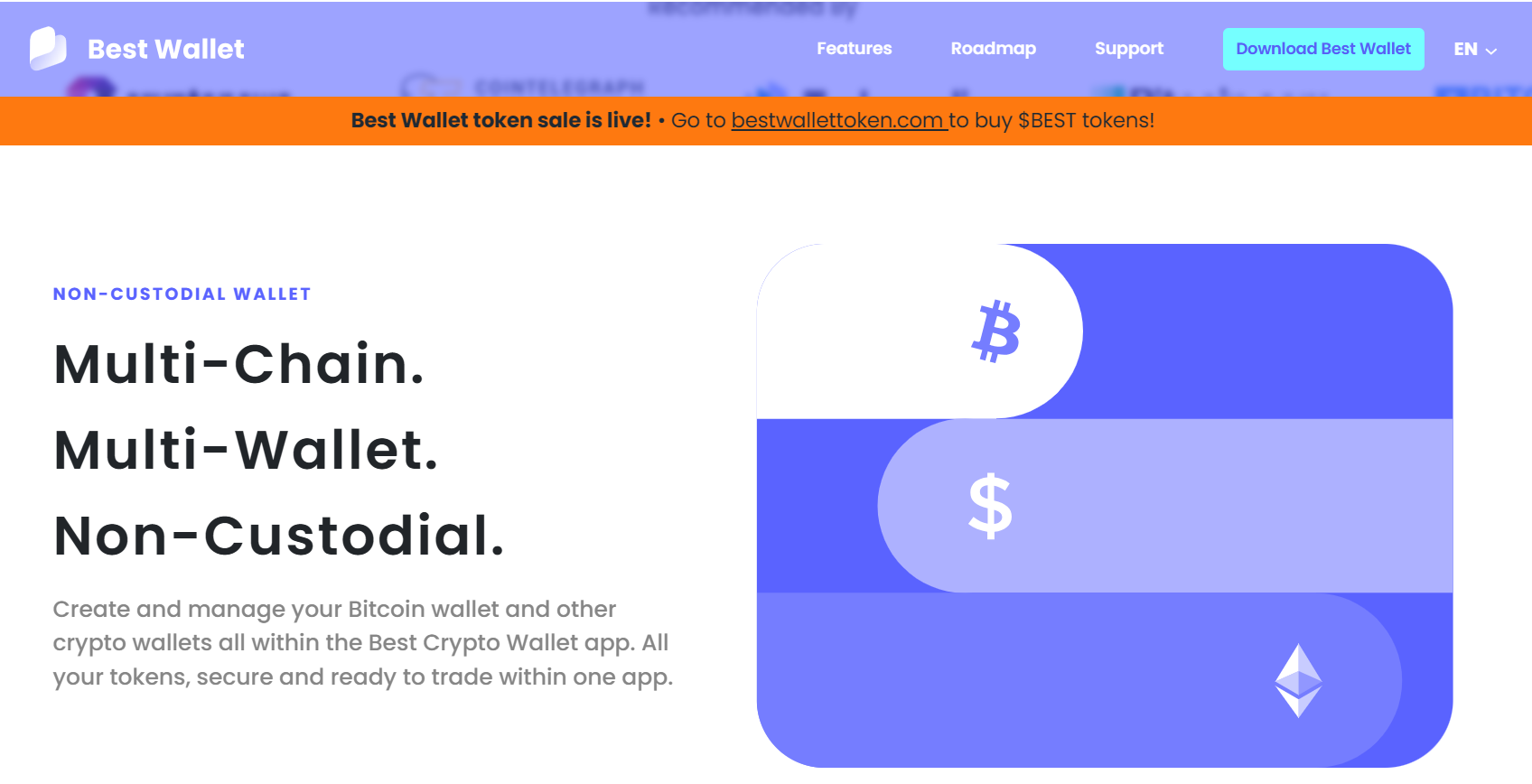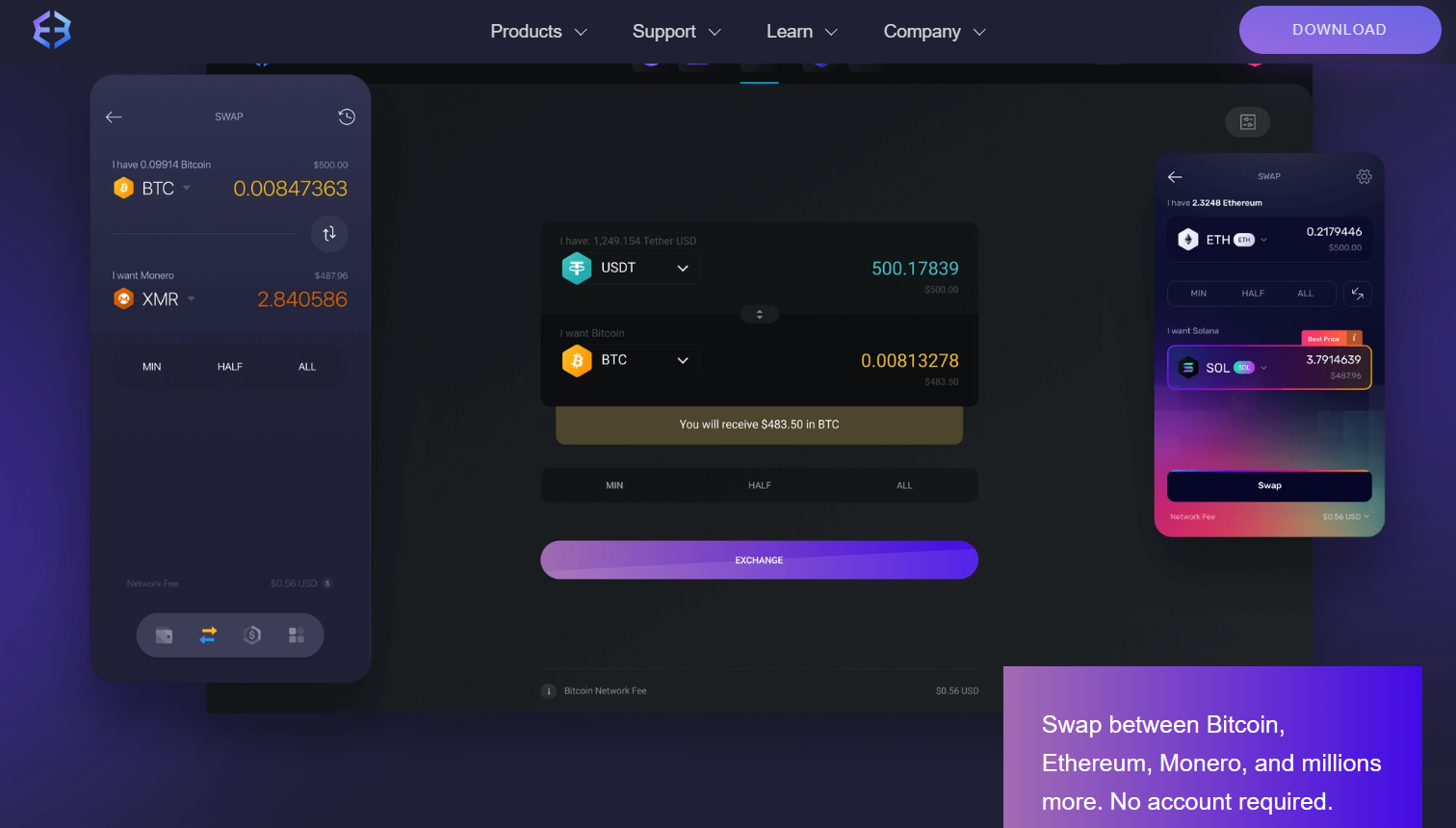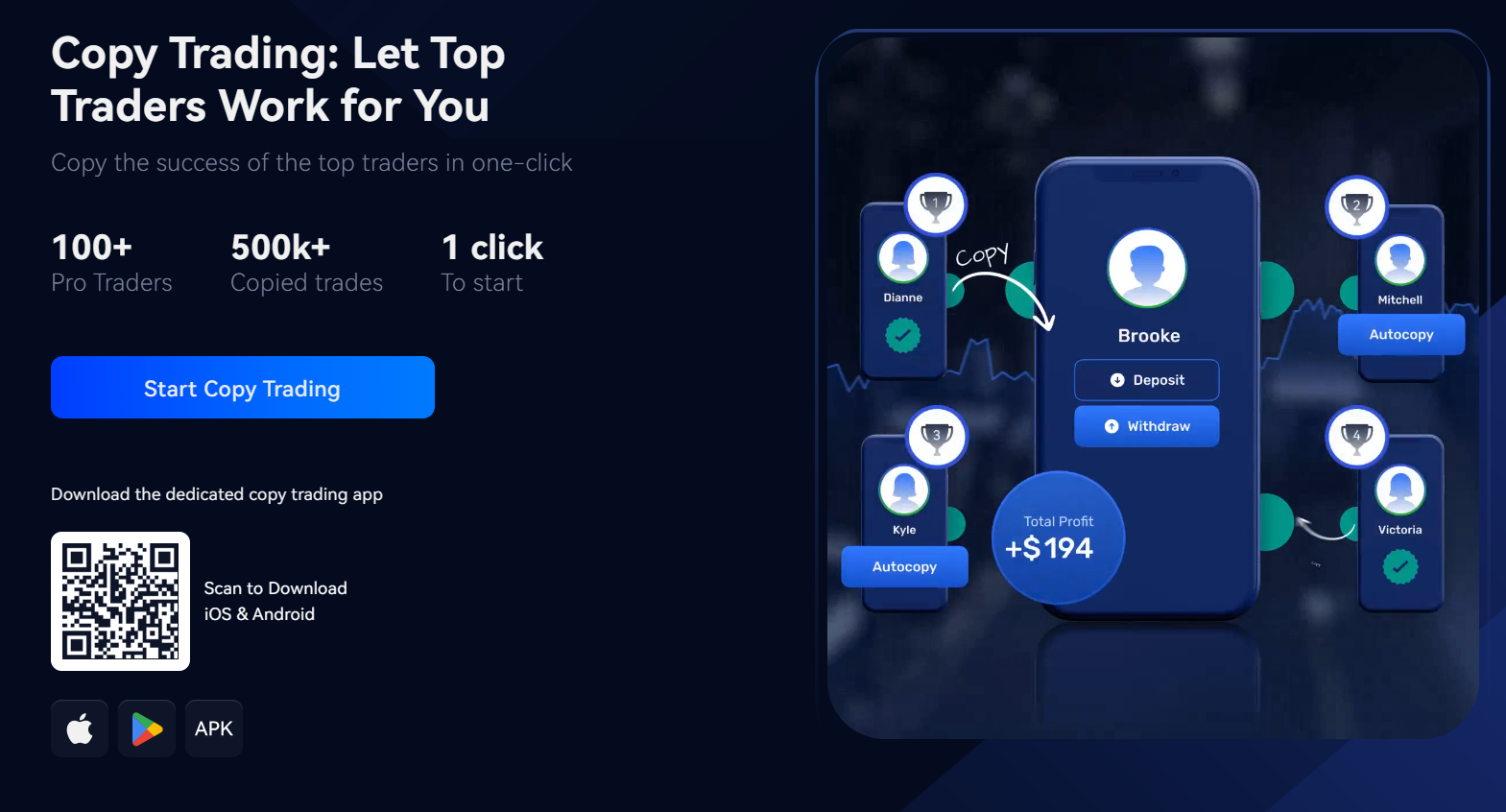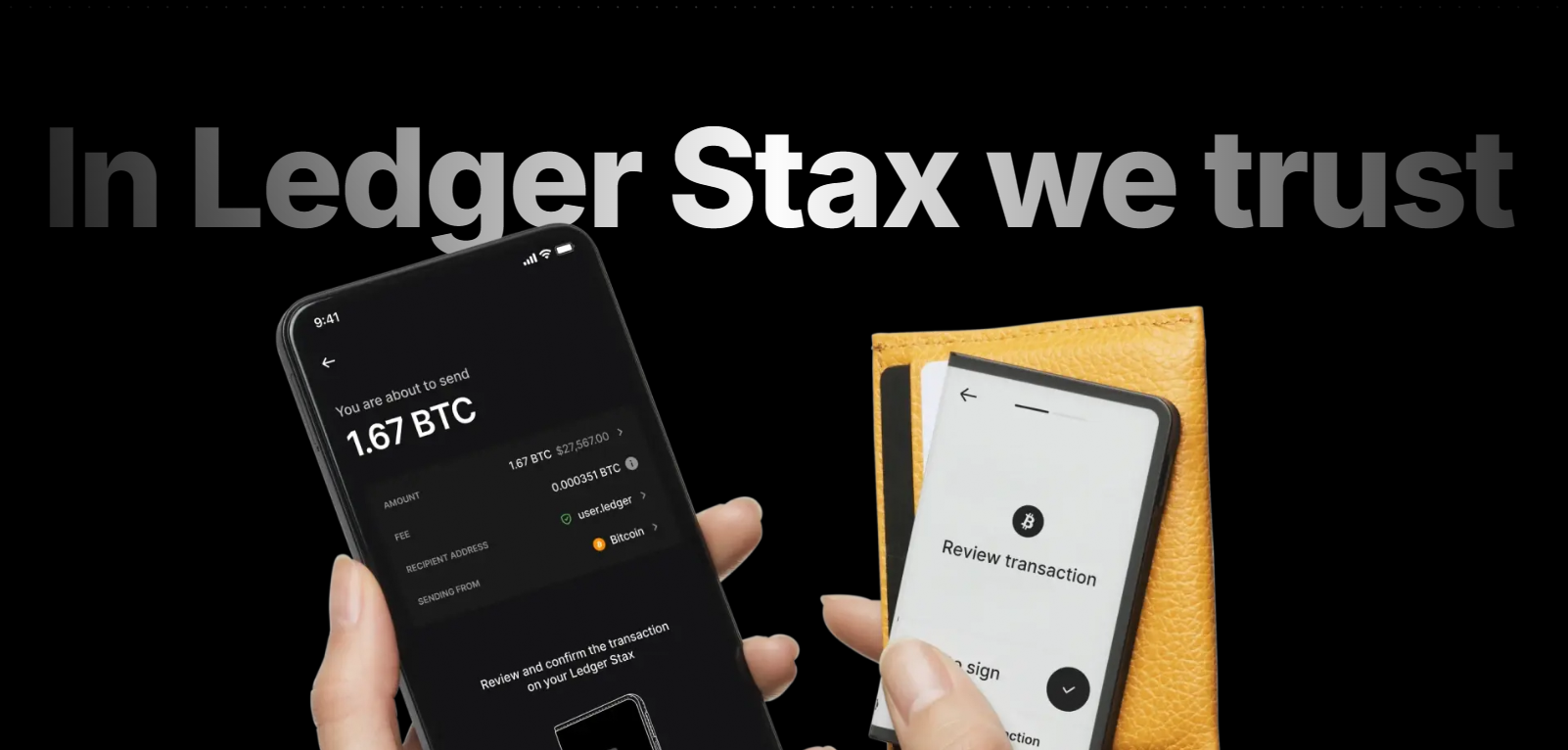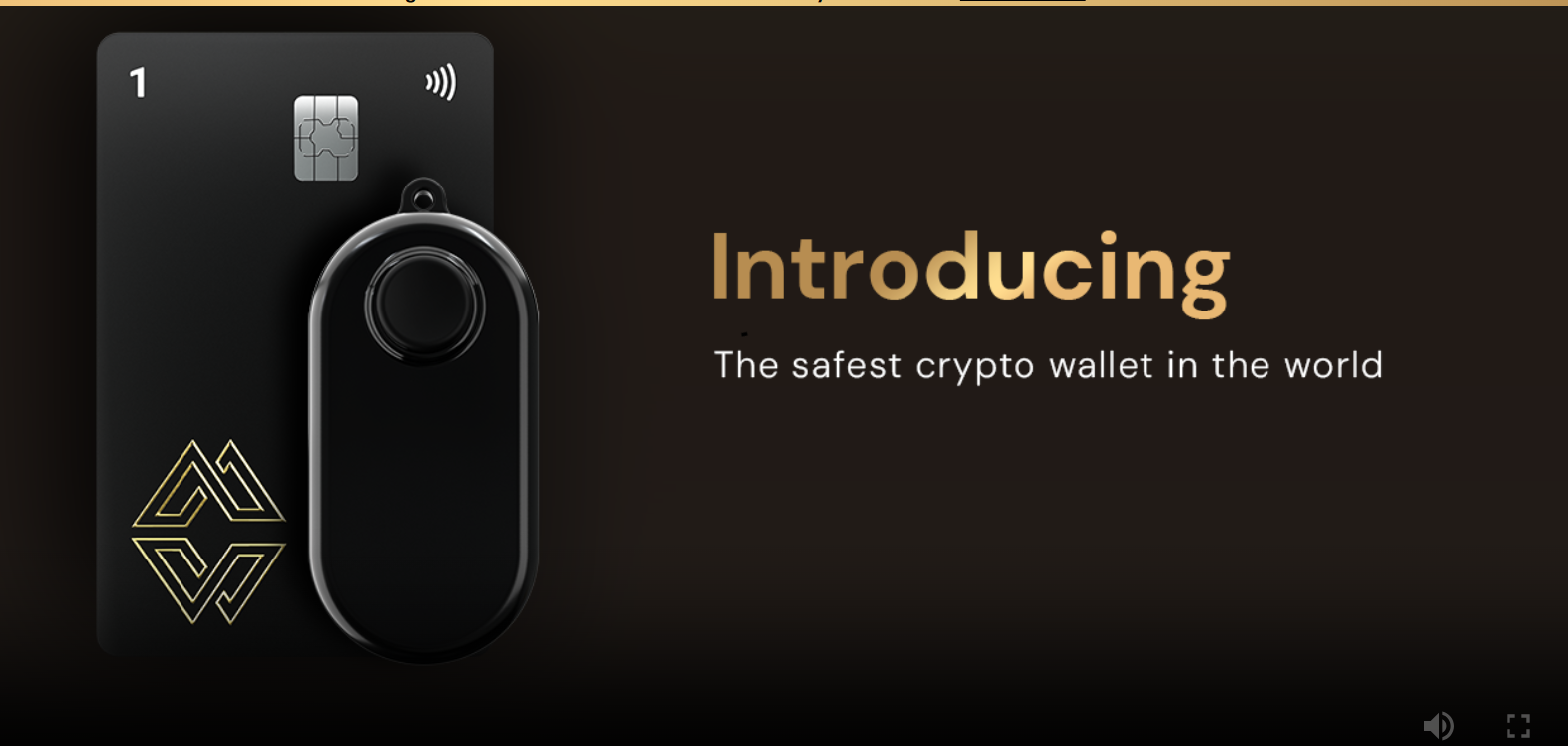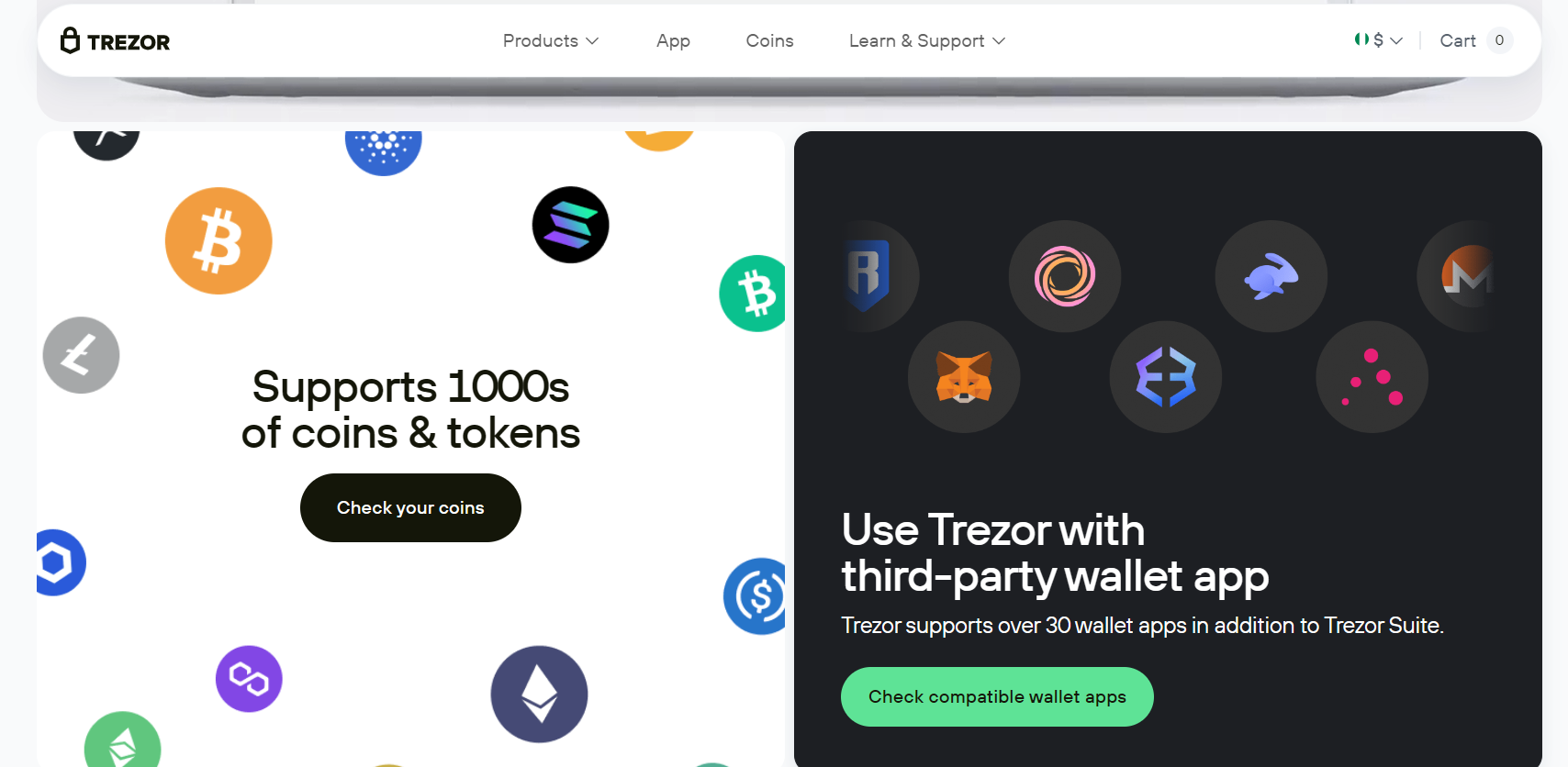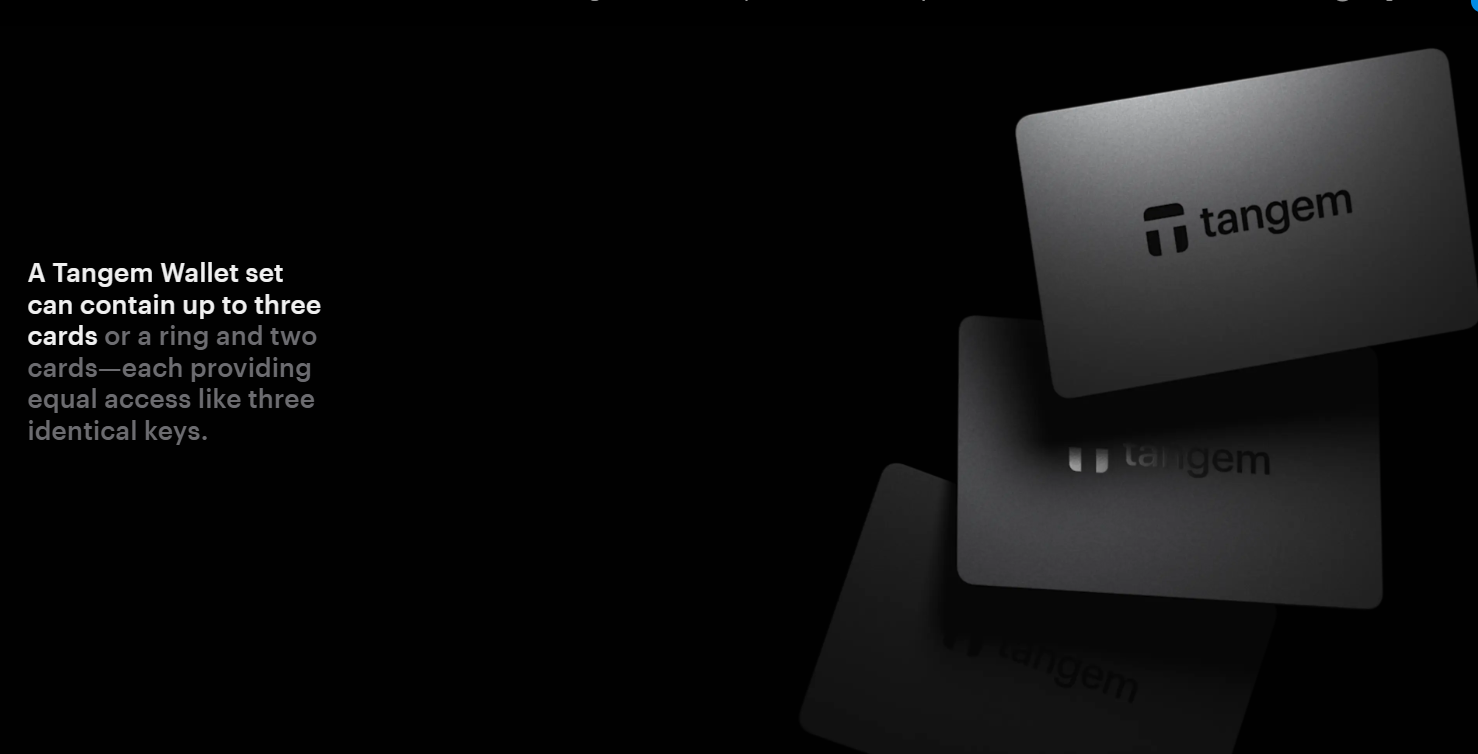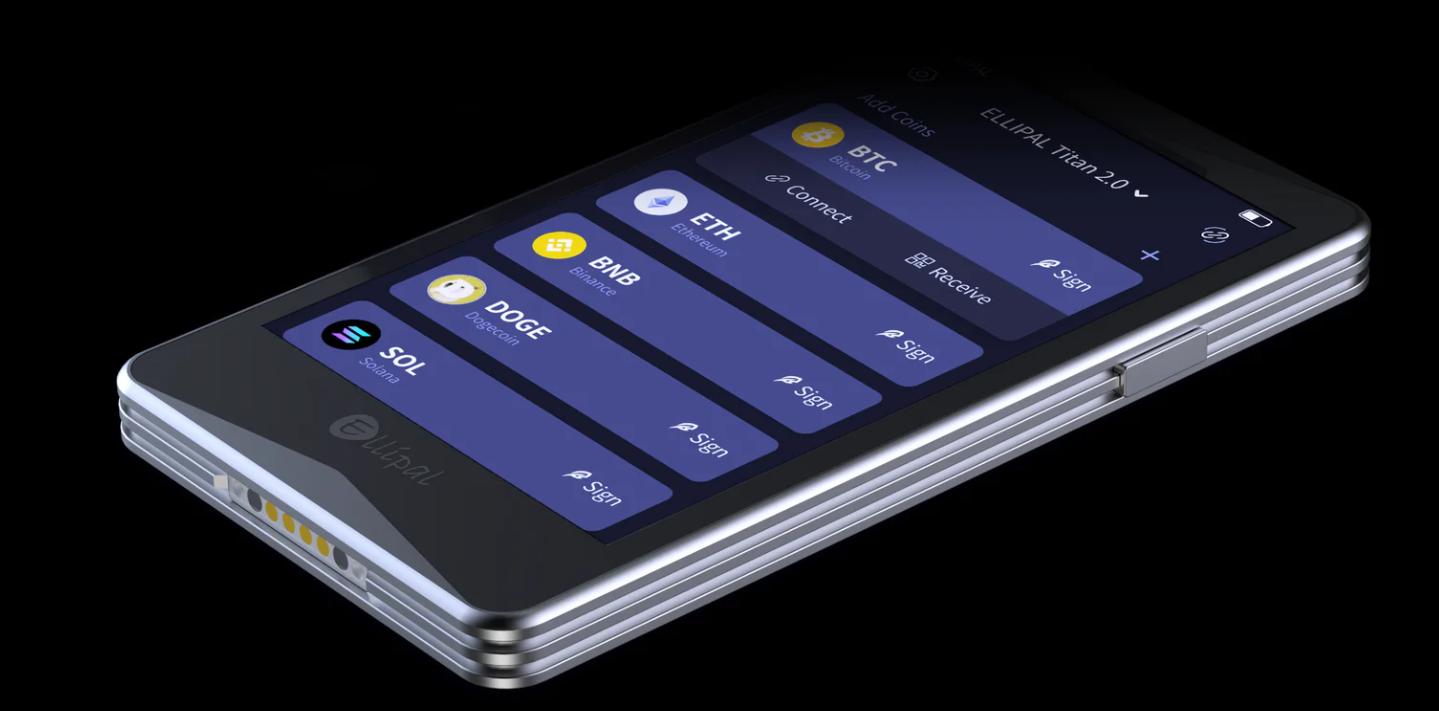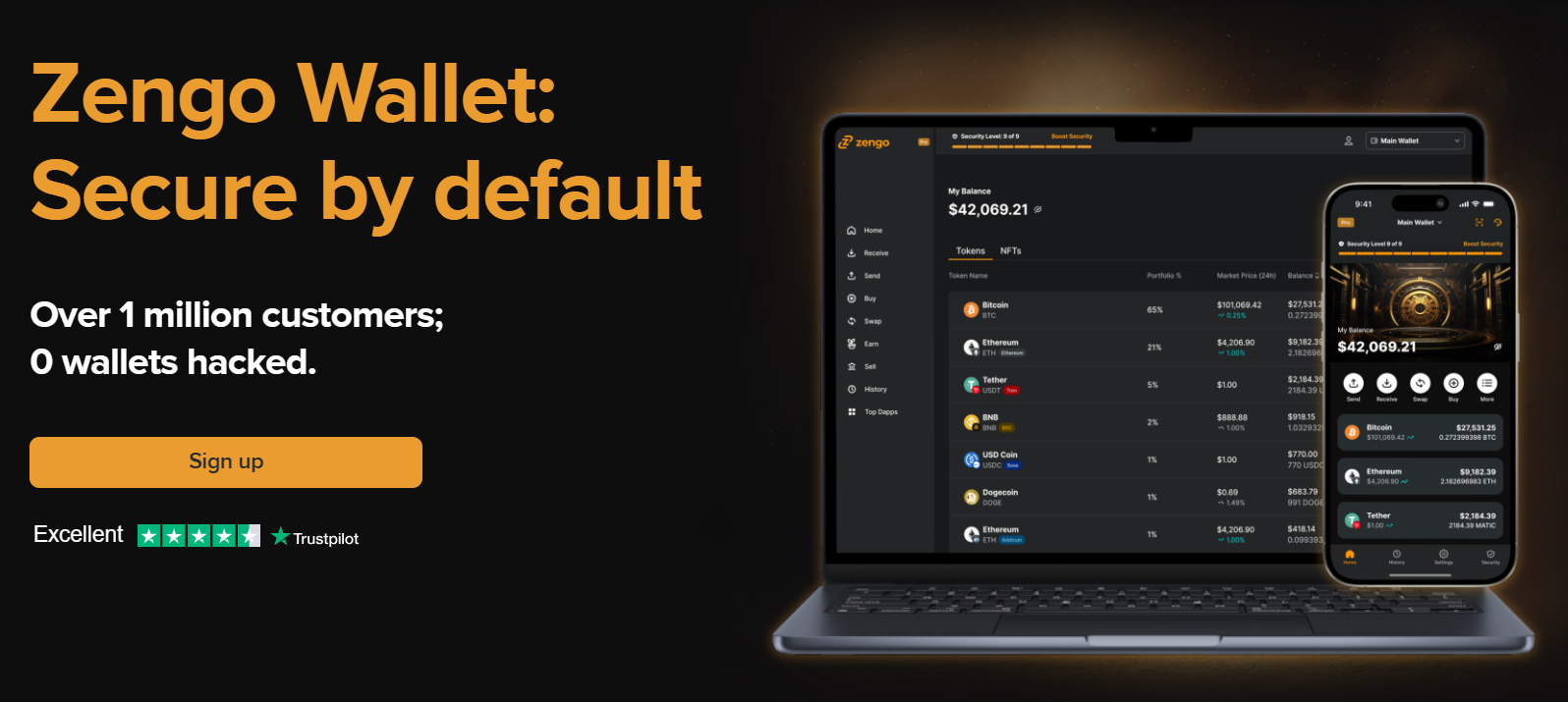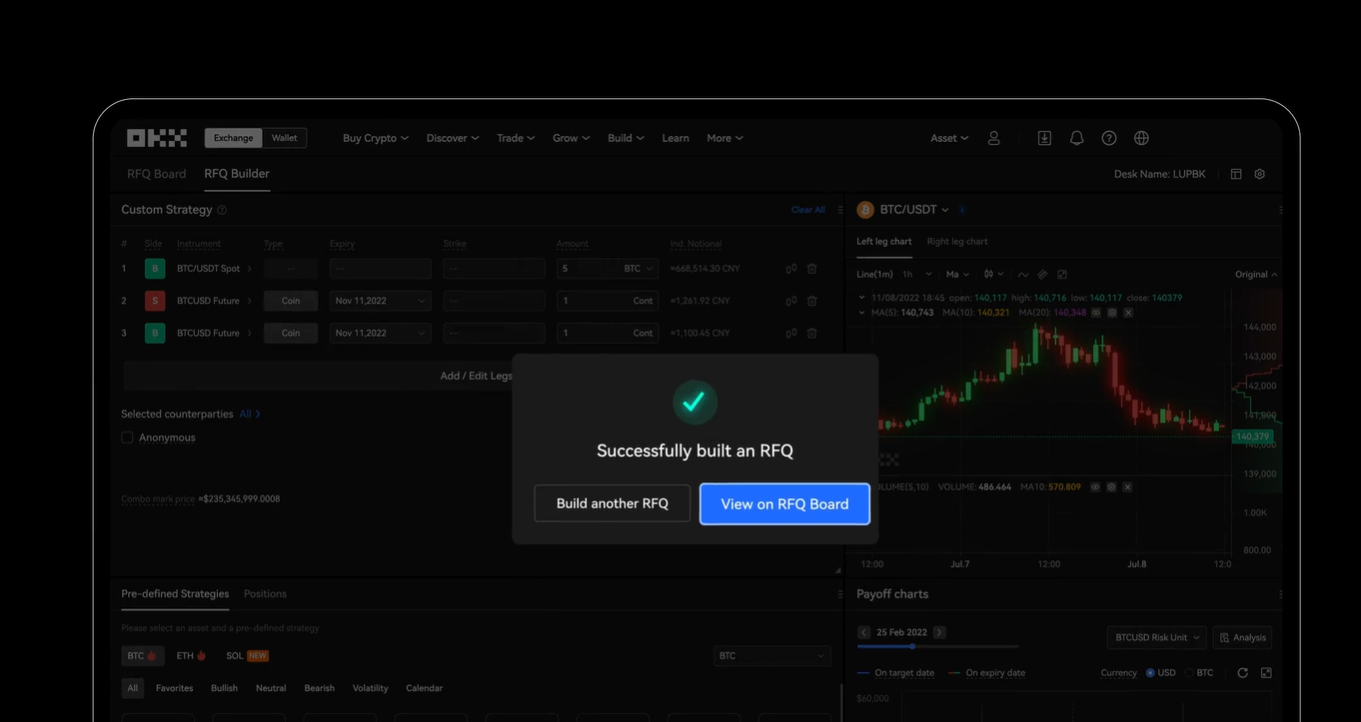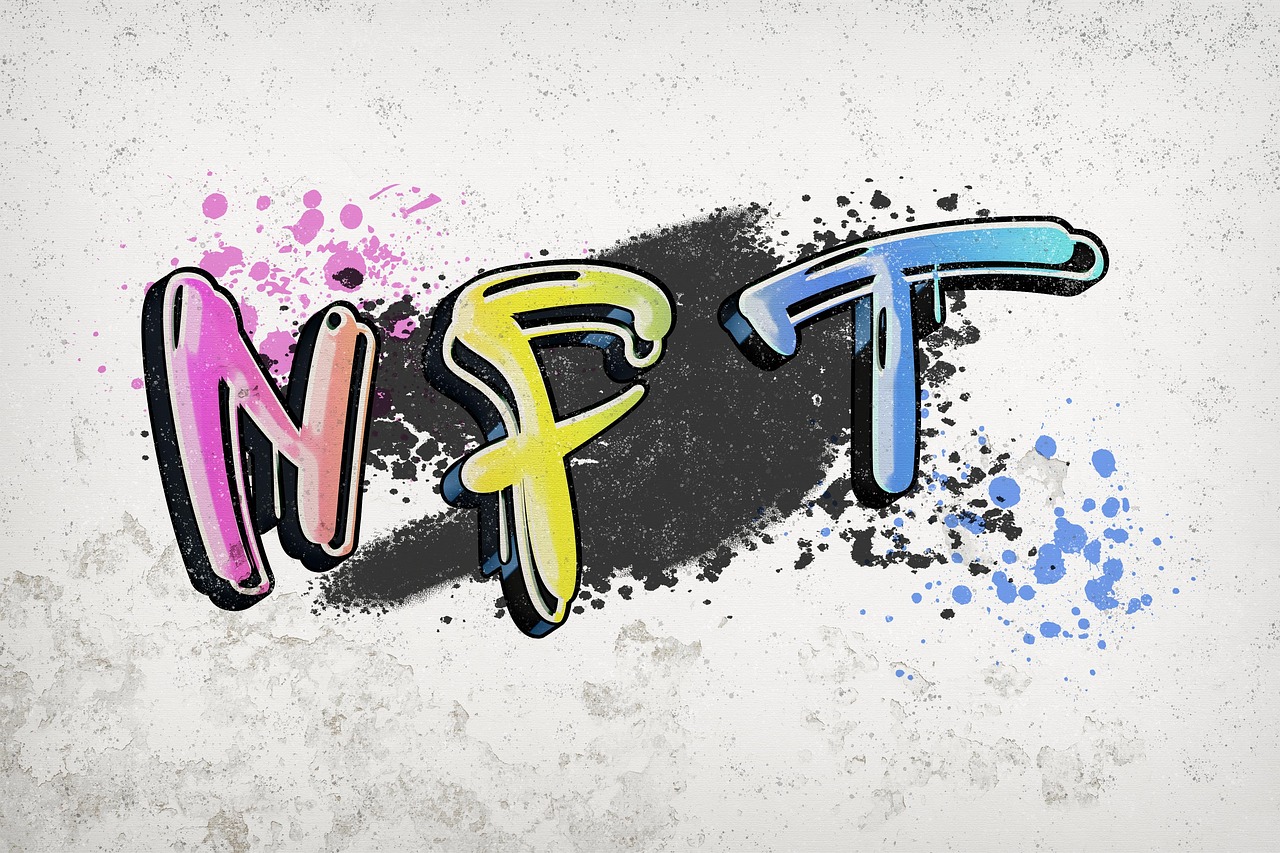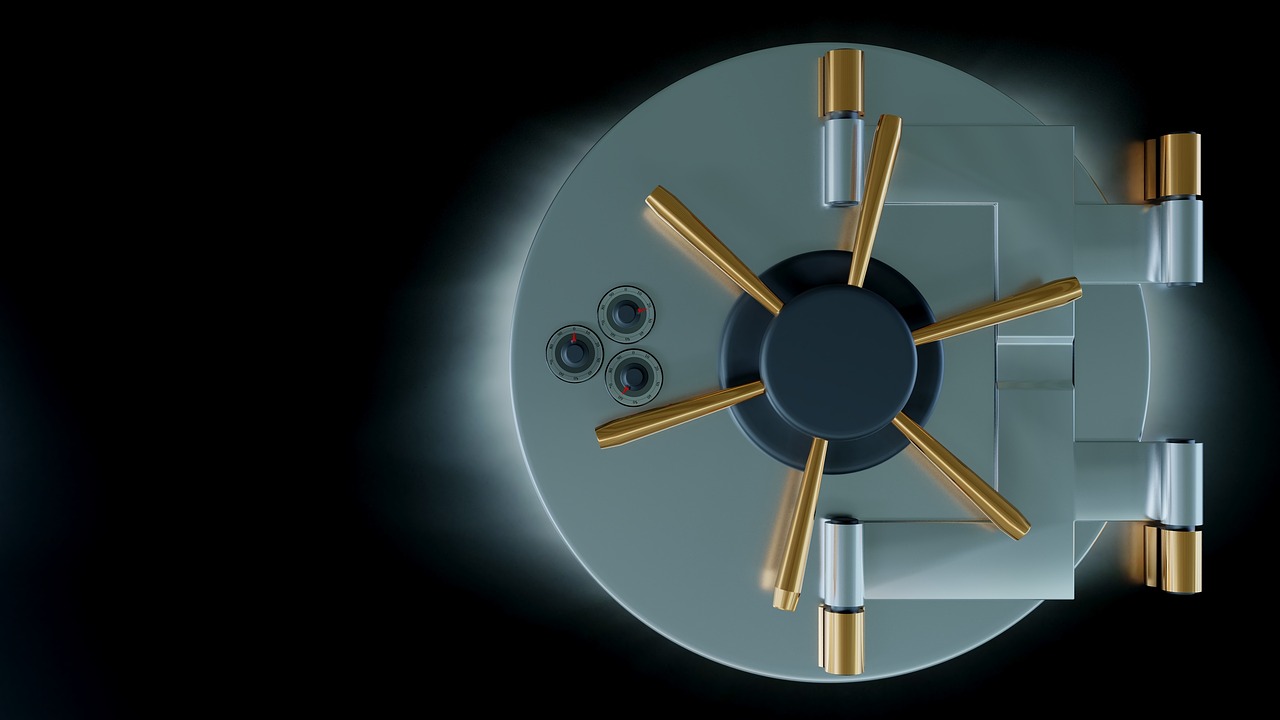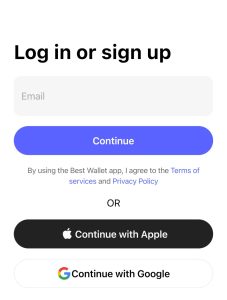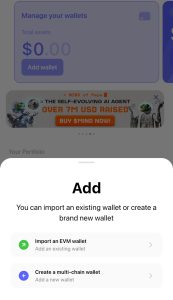What makes an impeccable NFT wallet? Is it the security features, compatibility, or the user-friendly interface? All these are critical when it comes to the best NFT wallets of 2025.
You can store NFTs on software and hardware wallets. However, it’s up to you to decide which works best for you, depending on how you work with the NFTs. Software wallets are more suitable for regular access to your NFTs, while hardware wallets work best for long-term storage or holding.
We’ll cover our best recommendations when it comes to NFT wallets in 2025. Best Wallet is our top recommendation because of its versatility, features, and handiness when you need to make quick transactions. Nonetheless, this guide will explain what you need to pay attention to when picking an NFT wallet for your assets.
Which Is the Best NFT Wallet?
When picking the best crypto wallets for NFTs, compatibility with your preferred blockchain network is essential. That’s because NFTs, just like tokens and coins, are made on specific networks.
With that in mind, here are our top recommendations for the best NFT wallets:
1. Best Wallet: Overall Choice for NFT Storage
Best Wallet is a fast-growing crypto wallet for crypto and NFT enthusiasts. It is our top choice if you want an anonymous wallet you can set up without verification or KYC. Even better, the wallet is non-custodial, meaning you keep your private keys and retain control over your NFT assets in the wallet.
With Best Wallet, you won’t have to be jumping from one site to another trying to swap cryptos to your preferred chain. The wallet has multi-chain support, with over 60 blockchains already on board as of this writing. These include Solana, Bitcoin, Ethereum, Ripple, BNB Chain, TRON, and Cardano.
Thanks to its multi-chain support, you can import or create different wallets to manage your NFT portfolio. Speaking of portfolio management, Best Wallet provides real-time profit and loss tracking, with quick views of current purchase prices and values.
When it comes to buying with the best exchange rates and lowest fees, Best Wallet stands out among the best wallets for crypto and NFT. That is because of the Onramper integration and the introduction of the Best Wallet token. You can hold the latter to get reduced fees when purchasing crypto or NFTs directly on the platform.
To further expand its reach, Best Wallet supports several DEXs and bridges. You can search for more cryptos and NFTs using the DEX integrations while the wallet keeps your assets safe.
Best Wallet features dApps for iGaming. That means you can effortlessly store your gaming NFTs as well and use them when needed on iGaming platforms through a DApp.
So far, Best Wallet has won over hundreds of thousands of users. To set up your account, simply download the app on your mobile device. You should be done in no time to receive your first NFTs in your wallet.
Top Features in Best Wallet
Here are some of the top features that give Best Wallet an edge over other NFT wallets:
- Exclusive and first-row access to new tokens and NFTs
- Seamless crypto exchange across different blockchains
- Advanced anti-fraud protection
Pros and Cons of Using Best Wallet
| Pros | Cons |
 The wallet offers complete anonymity The wallet offers complete anonymity
|
 Desktop extension is not yet available Desktop extension is not yet available
|
2. Exodus – Best NFT Wallet for Beginners
Exodus features a simple interface and user experience that makes it one of the best NFT wallets for beginners. Like Best Wallet, Exodus is self-custodial, meaning you have full control over your NFTs and other crypto assets. The private keys are also yours.
As of 2024, Exodus had over 4.5 million users. The number is growing, and we expect it to hit 100 million users soon. Whether it’s meme coins, AI agent coins, or shitcoins, Exodus has just the right storage for it. But what makes it stand out is the exclusive NFT gallery, where you can store and manage all your digital collectibles in one spot.
The NFT Gallery provides tools for easy management of your NFT assets. You also get a transaction history to keep track of all your purchases and sales.
Besides featuring its in-house storage for NFTs, Exodus is also a proven leader in NFT technology. In 2024, Magic Eden leveraged its XO Swap technology to build an NFT wallet that is well optimized for NFT trading and cross-chain management.
As of this writing, Exodus supports NFTs on several blockchains, including Ethereum, Avalanche, BNB Chain, Base, Cardano, and Polygon. It is also among the best Solana NFT wallets you can get in 2025.
To receive an NFT in your Exodus wallet, simply go to the NFT section and select “Receive.” Choose your preferred blockchain network and share the QR code or wallet address with the sender.
For NFT transfers, use the “Transfer” option in the NFT section. Then, scan or paste the receiver’s wallet address.
You can set a custom price for your NFTs right inside your wallet. Exodus also allows you to share your NFTs without transferring ownership to the receiver. That way, you can market your NFTs more efficiently.
Pros and Cons of Exodus
| Pros | Cons |
 You can hide unwanted NFTs in your wallet You can hide unwanted NFTs in your wallet
|
 The community cannot fully audit the wallet’s vulnerabilities The community cannot fully audit the wallet’s vulnerabilities
|
3. Margex Wallet – Best NFT Wallet for Traders
We recommend Margex to traders because of its robust trading features. The wallet supports copy trading, where you can follow the top traders instead of making your analysis. As such, it is an ideal platform for beginners who prefer trading their NFTs and crypto assets to holding them for the long term.
Besides copy trading, Margex also supports perpetual futures trading. It does that through its derivatives section, but it gets even better. Beginners can use the live demos to practice and sharpen their skills before going into the actual market with real funds.
For trades, Margex offers speedy order executions. The platform can execute 100,000 trades per second with an average trade execution time of less than 8 milliseconds. All these are possible, thanks to the liquidity from over 12 providers.
You’ll get advanced trading charts to track the market more efficiently. That’s something most crypto wallets do not have. Hence, Margex is one of the best wallets for NFT traders.
Besides NFTs, Margex supports over 55 assets. You will also find new Binance listings and other new cryptocurrencies on the platform. Simply go to the “New Listing” tab on the trading page. Here, you’ll find new pairs, including the last traded price, charts, and the 24-hour price change.
Margex offers the MP Shield system, which uses AI technology to prevent market or price manipulation. This system provides an equal and fair trading opportunity to everyone on the platform.
Pros and Cons of Margex
| Pros | Cons |
 There is MP Shield to protect users against price manipulation There is MP Shield to protect users against price manipulation
|
 Crypto traders from the US are not eligible to use the platform Crypto traders from the US are not eligible to use the platform
|
4. Ledger Stax – Top Choice for Hardware NFT Wallets
Ledger Stax is not just a secure wallet to store NFTs, but also fun to use. It is a curved E-ink wallet you can customize to your preferred name and even add an NFT as your display picture. You can also use a photo as your display picture.
You’ll receive magnet shell protection when you buy Ledger Stax. Even better, the device is compatible with mobile operating systems for seamless operations. Hence, you can connect it to your Android, iOS, and Windows laptop to access and manage your NFT and crypto assets.
While not fully air-gapped, Ledger Stax offers complete offline isolation to your private keys. It also has the CC EAL6+ secure chip, giving it one of the highest levels of security for hardware wallets today. You can set up a 4-8 digit PIN code for extra protection from unauthorized access.
Ledger Stax allows you to clear sign your transactions with ease. In other words, you can confirm all the transaction details directly on the E Ink touchscreen before signing them. The transaction details are in human-readable language for users to effortlessly read.
You can manage over 5,500 coins and tokens and install over 100 apps. The Ledger Live app is also available to complement the Ledger Stax and other Ledger hardware wallets. You can buy, sell, and swap crypto assets on the app and even stake crypto for extra rewards. Even better, there are no installation fees for the mobile app. The fees come when you purchase the hardware wallet.
Pros and Cons of Ledger Stax
| Pros | Cons |
 The wallet supports over 5,500 coins and tokens The wallet supports over 5,500 coins and tokens
|
 The physical device is prone to damage or theft The physical device is prone to damage or theft
|
5. Cypherock – NFT Wallet Private Key Security and Effortless Inheritance
Cypherock is one of the best NFT wallets that addresses not only private key security but also inheritance. The seamless recovery and inheritance come from Cypherock Cover, one of the products under the Cypherock brand.
You can set up the Cypherock Cover using your details and authorization. If you need another party, you can nominate another user. Cypherock will send your recovery details to this nominee if you are unavailable to recover your account. Even better, you can decide how long Cypherock should monitor your account for inactivity before activating the recovery process.
As for Cypherock X1, this wallet is where private keys become decentralized. Instead of keeping your private keys all together in one place, Cypherock X1 allows you to split and store the keys in five parts. You simply need four X1 cards and one Vault card. Anytime you want to do a transaction, you can use one X1 card and the vault to sign and authorize the transaction.
Cypherock connects with Binance to expand its crypto trading capabilities. Hence, you can seamlessly grab new cryptocurrencies on Binance, store them on your Cypherock X1, and trade them when needed. The same goes for NFTs and DeFi tokens.
You can manage four wallets in your Cypherock X1. This feature is ideal to split and maintain your portfolio effectively. Nevertheless, Best Wallet does an even better job at managing multiple wallets.
Pros and Cons of Cypherock
| Pros | Cons |
 You can manage multiple wallets on the platform You can manage multiple wallets on the platform
|
 The hardware wallet cards have a plastic build, which is prone to damage The hardware wallet cards have a plastic build, which is prone to damage
|
6. Trezor – Best Hardware Wallet for Beginners
If you want a hardware wallet for your NFTs but have little or no experience, the Trezor line is your best bet. The least expensive hardware wallet in this line is the Trezor Model One, going for $49. For better functionality and more coin support, you can pick the Trezor Safe 3 and the Trezor Safe 5.
While Trezor doesn’t support as many chains as Best Wallet, it is still one of the best Ethereum wallets for NFT storage. You can also store and manage NFTs on any of the other chains supported on the wallet’s firmware. These include the BNB Smart Chain and Polygon.
You can view and manage your NFTs on the Trezor Suite, the wallet’s proprietary app. However, you may have to turn on the NFT feature in the experimental section. That is because Trezor’s support for NFTs is only a recent development.
When trading your NFTs from your Trezor wallet, you can connect with MetaMask to communicate with the NFT marketplace. Even at that, Trezor keeps all your crypto assets and NFTs secure offline in the hardware wallet.
You can back up your Trezor wallet as you set it up. Alternatively, you can use the Trezor Keep Metal 20-word, a hardware backup solution for Trezor users. This device secures your backup in a resilient steel design.
The Trezor Keep Metal 20-Word has two backup solutions: the single-share backup and the multi-share backup. However, the backup solution only works with limited products on the Trezor line. That includes the Safe 3, the Safe 5, and the Model T.
Pros and Cons of Trezor
| Pros | Cons |
 There is a hardware backup solution that is safer and durable There is a hardware backup solution that is safer and durable
|
 You can’t stake tokens for passive rewards You can’t stake tokens for passive rewards |
7. Tangem – Top Choice for Portability
Tangem does not currently support NFTs directly on its wallet. However, you can connect your wallet to NFT marketplaces using WalletConnect. With that connection, you can manage your NFTs just as you would in an actual wallet.
We included Tangem here because it is a hardware wallet and, most importantly, portable. A typical Tangem wallet is like a debit card, yet secure like a bank vault. The slim profile makes it easy to carry around, unlike other hardware wallets on this list.
You’ll get a 25-year warranty on the Tangem wallet, one of the longest we’ve seen on any hardware wallet, but it doesn’t end there. The wallet comes with the EAL6+ security standard. It has also passed an intensive audit test from one of the leading auditing agencies in the world.
It takes about 3 minutes to set up your Tangem wallet, but that’s not the best part. During the setup, the wallet generates a random private key offline. That means your private keys remain secure from the get-go, as no other copies are available anywhere in the world.
Each Tangem wallet can take three cards or a ring and two cards. So far, none of Tangem’s cards have been hacked. You also have biometric lock and access code protection to further protect your device.
With the Tangem wallet app, you can track crypto prices, trade them, and even analyze tokens. Staking is also available.
Pros and Cons of Tangem
| Pros | Cons |
 The wallet is slim and easy to carry around The wallet is slim and easy to carry around
|
 The wallet does not support NFTs directly The wallet does not support NFTs directly |
8. Ellipal – Best Choice for Air-gapped Cold Storage
Ellipal is another hardware wallet solution to manage your crypto assets and NFTs. It does fall behind among the best wallets for Solana NFT collections. However, the wallet is a top choice when dealing with NFTs on Ethereum and Polygon blockchains.
You can manage over 10,000 tokens across over 40 blockchains with Ellipal. The top products in its line include the X Card, Titan 2.0, Titan Mini, and Seed Phrase Steel. All these are available for purchase on its official website.
The Titan X Card offers a fully air-gapped cold wallet solution. It is also EAL6+ certified with a 4-inch display that shows you what you are signing.
You can buy, swap, and sell your crypto assets via the wallet app while your private keys remain offline. The wallet also allows for staking, but you’ll find the DApp integration even more exciting. This integration allows you to manage your NFTs, among other crypto assets.
Pros and Cons of Ellipal
| Pros | Cons |
 The X Card wallet is fully air-gapped with offline storage for your private keys The X Card wallet is fully air-gapped with offline storage for your private keys
|
 The wallet may be confusing to beginners The wallet may be confusing to beginners |
9. Zengo – Store and Trade with Legacy Transfer
Like Best Wallet, you don’t need KYC verification to register with Zengo. Even better, you can set up generational inheritance to transfer your assets seamlessly. The only significant drawback is its price tag, as it is relatively more expensive than other wallets in its category.
The Zengo wallet is self-custodial with zero seed phrase vulnerability. That is because it uses the institutional-grade MPC instead of seed phrases.
As for chains, Zengo has multi-chain support, and you can manage over 380 cryptocurrencies, including Bitcoin and BASE. You can store, manage, and use your NFTs and connect with thousands of DApps. Note that the NFT support is limited to NFTs on Ethereum and Polygon networks.
You can create up to five segregated wallets with Zengo. In addition, you can add 3FA verification to keep the wallets more secure.
Legacy transfer, one of the hallmarks of Zengo, allows you to transfer your crypto assets to a trusted friend or family member. There is also theft protection.
Pros and Cons of Zengo
| Pros | Cons |
 24/7 support is available 24/7 support is available
|
 You need to subscribe monthly You need to subscribe monthly
|
10. OKX Wallet – Top Choice for In-house NFT Trading
The OKX wallet is a comprehensive Web3 wallet that can handle cryptocurrencies, NFTs, and other digital assets. It is available as a mobile app, a browser extension for PCs, and a desktop application. All three offer robust access to over 127 decentralized networks on the main OKX platform.
Unlike other wallets on this list, the OKX wallet has an integrated marketplace where you can trade NFTs. You don’t have to connect to third-party DApps to access this marketplace.
The OKX wallet ties directly with the OKX exchange. As such, you have premium access to many centralized and decentralized applications to trade and manage your crypto assets seamlessly.
Pros and Cons of OKX
| Pros | Cons |
 There’s an in-house NFT marketplace There’s an in-house NFT marketplace
|
 It has limited payment options It has limited payment options
|
What Are NFT Wallets?
NFT wallets are digital wallets that store and manage NFTs. You can receive NFTs in your wallet and trade them effortlessly as well. The wallet also allows you to view your NFTs.
The NFT wallet secures the private keys that prove your ownership of the NFT. It doesn’t actually hold the NFT. Some of the best Web3 wallets support NFTs, but not all crypto wallets support NFTs. Some only support coins and tokens.
Even among wallets that support NFTs, they typically do so on limited blockchain networks. For example, Ellipal supports NFTs on the Ethereum and Polygon blockchains. It does not support NFTs on Solana.
NFT wallets do not only hold the private keys, but they also allow you to interact with DApps. These DApps may be NFT marketplaces or other trading platforms where you can trade your digital assets effortlessly.
How to Choose an NFT Wallet App?
When looking for an NFT wallet app, we recommend going for those specifically designed for NFTs. The reason is that you’ll get better visuals of your NFTs, easy integration with NFT marketplaces, and even an integrated or in-house NFT marketplace, like OKX.
We’ve given you our top recommendations for the best NFT wallets in 2025. But if we were to do it all over again, here are the factors we would consider:
Security Features
The private key management is one of the first things we will look for. Go for wallets that offer offline private key storage. That way, your private keys will not be prone to hacks or digital breaches.
Hardware wallets are the best. Nonetheless, some digital wallets, like Best Wallet, still offer premium security for your private keys.
Compatibility
Ensure your preferred wallet supports NFTs on the correct blockchain. Some wallets support NFTs on Ethereum but not on Solana. Others support NFTs on Solana but not on Polygon.
We recommend NFT wallets with broad chain coverage. That way, you can store and manage NFTs on multiple chains without challenges.
Another thing to note here is that some wallets support NFTs through DApp integration. They cannot store NFTs directly on their platforms. As such, these wallets should be your last choice if you can’t find one with direct NFT compatibility.
DApps Integrations
The more DApps the wallet supports, the more flexibility and features you can get when managing your NFTs. That is because DApps bring additional functionality, like trading charts, market analysis, and other features that help in trading or storing NFTs.
We also recommend you pick the best NFT wallets with integrated NFT marketplaces. This way, you can effortlessly sell or buy NFTs without jumping from one DApp to another.
OpenSea and Rarible are popular NFT marketplaces where you can trade your NFTs. These should be supported in the wallet.
User Experience
Some wallets may be too complex for beginners. For this factor, consider your expertise on crypto tools and features. If you are a beginner, then go for simple wallets like Best Wallet or Exodus.
User experience is one of the NFT wallets best features. The interface should be clean and not feel buggy. Most importantly, the wallet should be responsive on mobile devices.
NFT Wallets for Crypto: Advantages & Disadvantages
The following are the advantages and disadvantages of NFT wallets:
| Advantages | Disadvantages |
 Self-custody NFT wallets give you ownership over your digital assets. Self-custody NFT wallets give you ownership over your digital assets.
|
 Some NFT wallets are too complex for beginners. Some NFT wallets are too complex for beginners.
|
Are NFT Wallets Safe?
Yes, NFT wallets are safe. The best NFT wallets have several security measures, like offline private key storage and 3FA verification for transactions. Some even use EAL6+ secure chips.
It is still up to you to protect the physical device if you opt for hardware wallets or your private keys if you opt for software wallets.
Here’s a guide on how to open a Best Wallet account: You can download the app on the Play Store or the App Store. Avoid third-party websites, as they may contain malicious links. Enter your email to set up your wallet with a verification code. You can continue with Apple or Google as well. You can create and manage multiple wallets in Best Wallet. You can also import existing wallets for your crypto assets and NFTs.
You can get started today with Best Wallet, our top recommendation among the best NFT wallets. It is a software wallet, but you get to use it without any KYC verification. Most importantly, it is self-custodial. Hardware wallets like Exodus, Tangem, and Cypherock are equally premium options. You can never go wrong with any of them. However, ensure the wallet supports NFTs on your preferred blockchains.Getting Started with Best Wallet – Our Overall Best Choice
Step 1: Get the App
Step 2: Set up the Wallet
Step 3: Create a New Wallet
Best NFT Wallets – Conclusion
FAQs
Is MetaMask good for NFTs?
How to store NFTs?

